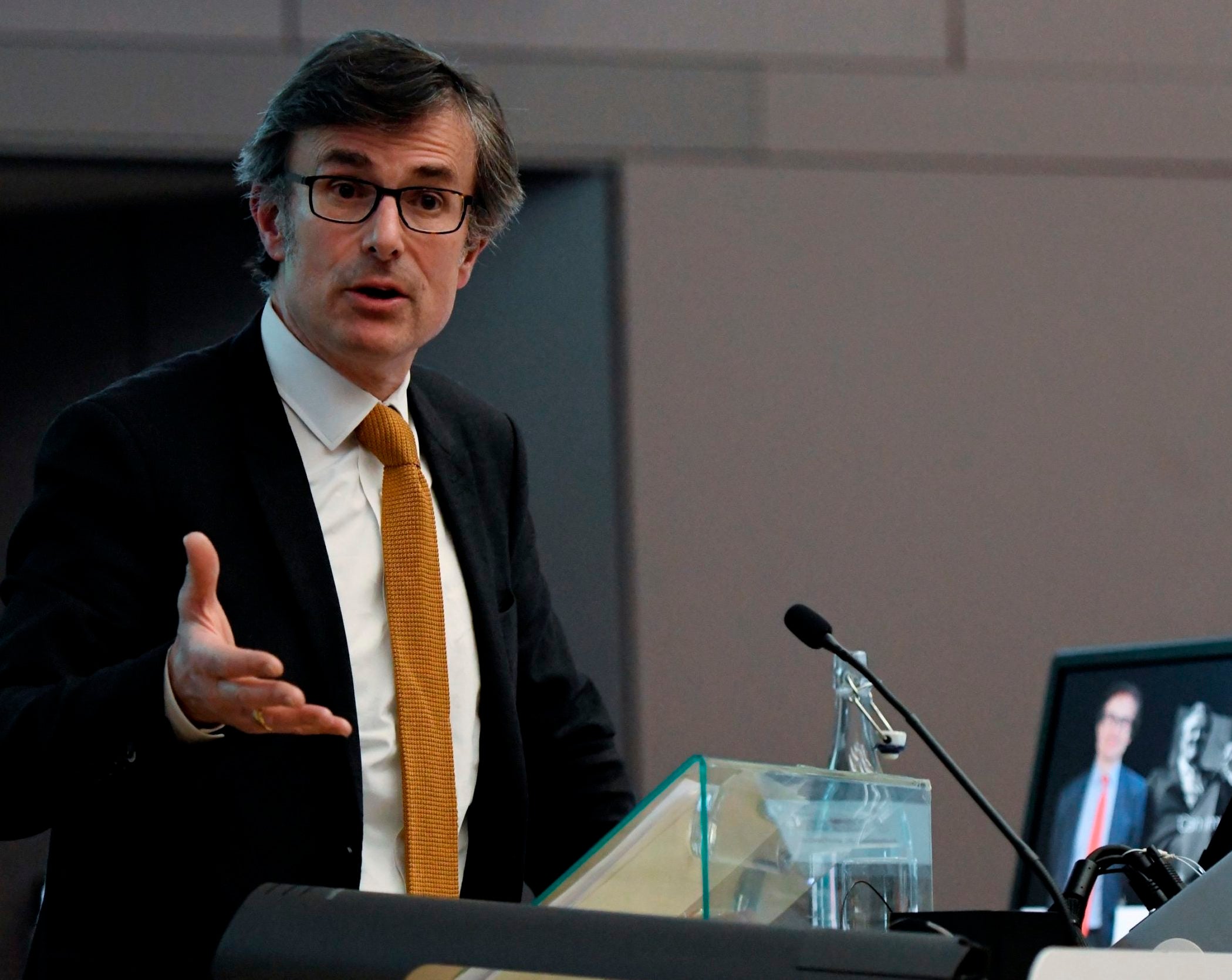
Robert Peston has said he feels he now has to say that he is a Jew “when reporting on the toxic question of anti-Semitism in the Labour Party”.
Peston, 59, said he has not been a member of a political party since he was 24 “because I never wanted to be seen as a pamphleteer or propagandist”, although his father was a Labour life peer.
“But although I can credibly claim not to show sympathies for any particular party, there are some facts about me that condition how I am seen and that I’ve chosen not to hide,” the ITV political editor said.
“In the current febrile political climate, it matters – and I say this with regret – that I am Jewish.
“Five years ago, the idea that I would ever have begun a report by saying ‘as a Jew’ would have been unthinkable.
“But when reporting on the toxic question of anti-Semitism in the Labour Party, I feel I have to say it – because although I strive to be as impartial in covering this issue as I would be when covering a general election or reporting on a corporate takeover, I cannot shed my Jewish identity in the way that I can cease to be a member of a political party or can dispose of shares in a company.”
Delivering the annual Hugh Cudlipp Lecture at City University in London on Friday, Peston said he is a “proud secular Jew”, but his Jewish identity is a “matter of birth”.
“And it matters that all my life I’ve encountered anti-Semitism, and also that anti-Semitism has become much more prevalent in recent years,” he said.
“There is an argument, I suppose, that because anti-Semitism is a personal issue for me, I should not report on it, that as someone who believes in the importance of impartial journalism I should always stand aside when a story about anti-Semitism and Labour needs to be covered.
“Possibly that is what Seumas Milne, Jeremy Corbyn’s director of strategy and communications, believes,” said Peston.
He said that when he pointed out to Milne that Corbyn had refused to be interviewed by him during the general election campaign, Milne replied by text saying: “Your reporting on Labour has not been remotely fair or balanced and included a high degree of slanted editorialising, reaching a low point in your broadcast on the 10 [news bulletin] on 26/11 [2019].”
Milne was referring to an interview carried out by Peston on the decision by chief rabbi Ephraim Mirvis to pen an editorial in the Times questioning if Corbyn was fit for high office given his failure to root out anti-Semitism from the Labour Party over the past two years.
“I reviewed that two-way,” said Peston of the interview with Mirvis. “It was impartial, both in respect of Ofcom’s rules and as a matter of common sense.
“The point I made was how shocking it was that the leader of an important section of the Jewish community should feel obliged to speak out during a general election, and that he was moved to do so by the deep hurt and fear felt by many of his congregation.
“This alienation of an important part of a British community could not be ignored, which is why I was surprised – to put it mildly – that Milne cited it when disqualifying me as a suitable interviewer of his boss,” said Peston.
“Would Milne or any of us have qualms about a woman journalist reporting on gender pay inequality or a gay journalist covering gay marriage in the church? I doubt it.
“In a way it is extraordinary any of this needs saying. But it may do in this era of identity politics trumping the politics of economic distribution.”
The Hugh Cudlipp Lecture is organised by the London Press Club and sponsored by the Mirror. Read Peston’s speech in full.
Picture: Daily Mirror/David Dyson
Email pged@pressgazette.co.uk to point out mistakes, provide story tips or send in a letter for publication on our "Letters Page" blog
